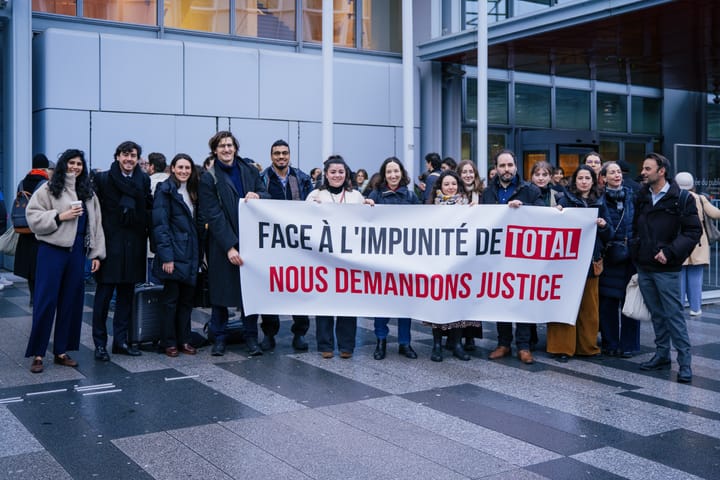Colorado’s Top Court Rejects Oil Companies’ Appeal, Allowing Boulder’s Climate Suit To Move Forward

A climate accountability lawsuit brought by Boulder, Colorado against oil companies ExxonMobil and Suncor is advancing towards trial after the Colorado Supreme Court on Monday upheld the trial court’s decision denying the companies’ attempts to dismiss the case.
In a 5-2 ruling issued on May 12, the state’s Supreme Court majority sided with the city and county of Boulder in rejecting the oil companies’ arguments that federal law preempts Boulder’s state law claims. “We now conclude that Boulder’s claims are not preempted by federal law and, therefore, the district court did not err in declining to dismiss those claims,” Justice Richard J. Gabriel wrote in the opinion. The decision affirms the district court’s ruling in June 2024 denying the oil company defendants’ motions to dismiss the lawsuit, which alleges that the companies misrepresented the climate change dangers of their products and thereby contributed to worsening climate impacts such as extreme precipitation and flooding and more extensive wildfires.
Boulder’s case targeting ExxonMobil and Suncor, initially filed in 2018, had been bogged down in procedural battles as the companies fought, ultimately unsuccessfully, to have it removed to federal court. With the case back in state court, the companies moved to have it dismissed, arguing that federal law such as the Clean Air Act bars state tort claims pertaining to climate change. The Boulder County District Court rejected these arguments last year, making Boulder’s case one of the first climate cases brought against the fossil fuel industry to survive the motion to dismiss stage. The defendants then appealed the trial court’s decision, and the Colorado Supreme Court heard the case in February.
The court’s decision rejecting the oil companies’ arguments puts the case a significant step closer to trial.
“This ruling affirms what we’ve known all along: corporations cannot mislead the public and avoid accountability for the damages they have caused. Our community has suffered significantly from the consequences of climate change, and today’s decision brings us one step closer to justice and the resources we need to protect our future,” said City of Boulder Mayor Aaron Brockett.
The lawsuit seeks to recover damages to help the municipality respond and adapt to climate change hazards. In bringing the legal action, Boulder alleges the defendants have violated state law, including public and private nuisance, trespass, unjust enrichment, and civil conspiracy.
When reached for comment, ExxonMobil said it will “continue to fight these claims.”
“We’ve maintained from the beginning this case is meritless and has no place before a state court,” the company said in an emailed statement.
Suncor did not immediately respond to a request for comment.
The Colorado Supreme Court’s ruling follows an October 31, 2023 decision from the Hawaii Supreme Court in a similar climate accountability case brought by the city and county of Honolulu against major oil and gas companies. The Hawaii court ruled against the companies in upholding the trial court’s decision denying their motions to dismiss, allowing Honolulu’s case to proceed towards trial. The Colorado Supreme Court references the Hawaii Supreme Court’s decision in its analysis, calling it “substantially on point.” Both state supreme courts have rejected oil companies’ characterization of the lawsuits as attempts to regulate interstate greenhouse gas emissions.
Defendants in Honolulu’s lawsuit petitioned the US Supreme Court to review the Hawaii Supreme Court’s ruling, but that request was denied earlier this year. It is unclear if defendants in Boulder’s case will file a similar petition to the top US federal court.
The Trump administration, meanwhile, has pushed back against state and local efforts to hold fossil fuel companies accountable for climate damages. President Trump signed an executive order last month directing the Department of Justice to take all necessary action to stop the enforcement of state climate laws and lawsuits, a directive that Boulder County commissioners said went beyond the federal government’s authority. But on May 1, the Department of Justice announced it was suing four states to try to block their climate liability initiatives targeting oil companies. Following that announcement, the state of Hawaii – one of the states that DOJ had sued – filed a climate deception lawsuit against ExxonMobil and other big oil companies as well as their chief lobby group the American Petroleum Institute.
Several of these climate lawsuits against Big Oil are inching their way towards trial in state courts. A consumer protection lawsuit brought by the Massachusetts attorney general against Exxon, for example, is already well into the pre-trial discovery stage. Honolulu’s case is moving forward, and now Boulder’s case is also on track to advance.
“The [Colorado Supreme] Court properly ruled that Colorado law is fully capable and appropriate to address climate harms occurring in Colorado,” said Kevin Hannon, a partner with Singleton Schreiber, LLP, one of the attorneys representing Boulder in this case. “After over seven years, Boulder County and the City of Boulder can finally have their day in court.”


